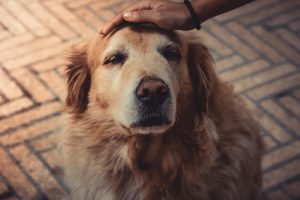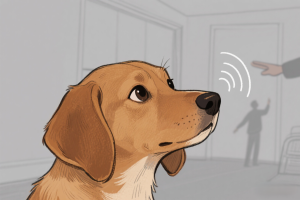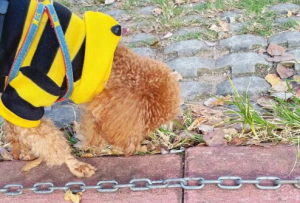A dog’s keen sense of smell and sharp hearing are two of its greatest assets. But even the sharpest knife dulls over time, and a dog’s once-proud hearing can decline as they age. When a beloved dog starts losing their hearing, they may become less responsive, which can trigger a range of emotions, including sadness, frustration, and anxiety. While there’s no guaranteed way to restore hearing in senior dogs, the following eight tips can help your dog continue to live a normal, happy life.
-
Consult a Veterinarian
It’s important to confirm that your dog’s hearing loss is solely due to ARHL (Age-Related Hearing Loss). If your dog also suffers from ear conditions such as foreign objects or infections, these can compound ARHL and potentially turn partial deafness into complete deafness. Treating ear issues can help restore hearing to an acceptable level.
-
Train Your Dog Using Hand Signals
When a dog experiences significant hearing loss, communicating through hand signals can create a greater sense of security and strengthen your emotional bond. Dogs naturally use body language to communicate, so they tend to learn hand signals quickly. Ideally, training with both gestures and verbal cues should begin during puppy classes. If your senior dog hasn’t yet learned to respond to hand signals, start training as soon as possible. Most older dogs are capable of quickly learning these new cues.
-
Use Non-Traditional Signals
In addition to hand signals, you can find other ways to get your dog’s attention. For example, create vibrations by clapping, stomping, or tapping a can; use a flashlight; guide them with appealing scents; or try a storm or emergency whistle. Find the method that works best for your dog. When your dog responds to these new cues, offer positive reinforcement such as favorite treats, belly rubs, or tug-of-war games.

-
Avoid Startling Your Dog
When approaching or touching your dog, it’s best to stay within their line of sight. If you need to wake a sleeping dog, gently stroke them in the same spot—shoulders work best—or place your hand near their nose using a familiar scent to wake them. Remind guests not to touch the dog while they’re sleeping. These steps help prevent startling your dog.
-
Stay Vigilant
There are unfortunately many cases of senior, hearing-impaired dogs being injured on driveways. Always ensure your dog wears a leash when outside. Inform friends, dog walkers, and caregivers about your dog’s hearing loss. This helps prevent accidental injuries and keeps your dog safe.
-
Enrich Your Dog’s “Olfactory Life”
Dogs rely heavily on their sense of smell. When a dog enters a new environment, their eyes gather first impressions, while their nose fills in the details. Olfactory stimulation influences canine behavior, so providing a rich smell-based environment can help compensate for sensory deficits caused by hearing loss.
-
Attach a “I’m Deaf” Tag to Your Dog’s Collar
Just in case your dog gets lost, this lets kind strangers understand why your dog isn’t responding to surrounding stimuli.
-
Encourage Yourself
Interacting with an aging dog can easily lead to feelings of frustration, sadness, or impatience. Remember, your dog can still sense negative emotions. Take a few deep breaths, encourage yourself, and restore your patience, empathy, and love for them. As your caregiving skills improve, your bond with your dog may become closer than ever before.
Additionally, dogs that are afraid of loud noises—such as thunder, gunshots, or fireworks—will no longer feel anxious. With the love and care of their owner, even with diminished hearing, dogs can still enjoy a happy and fulfilling life.





